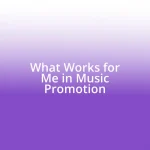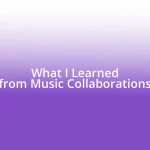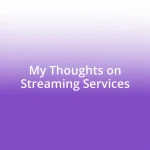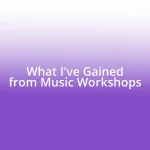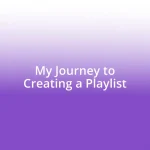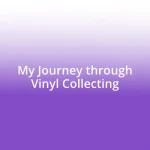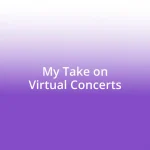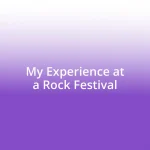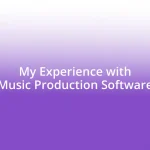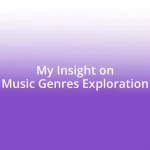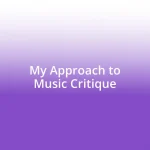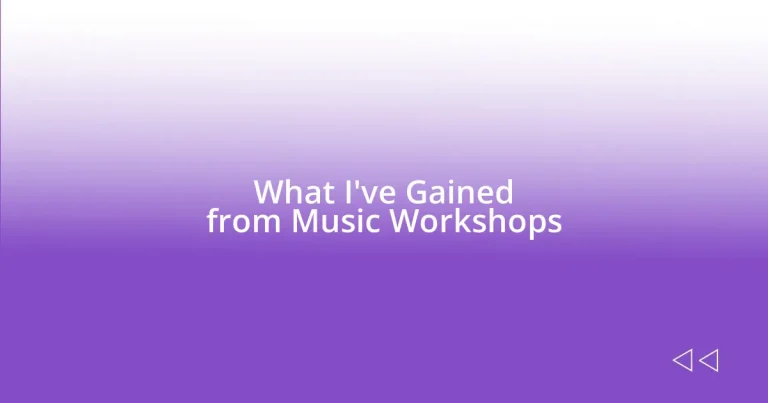Key takeaways:
- Music workshops foster a sense of community, transforming initial anxiety into supportive camaraderie and lasting friendships.
- Participants develop invaluable skills such as adaptability, active listening, creativity, and confidence, which enhance personal and professional interactions.
- Networking in workshops can lead to significant collaborations and exposure to diverse musical genres, enriching one’s career and personal growth.
- Embracing challenges in workshops, like sharing unfinished work or working under time constraints, can fuel creativity and build resilience.
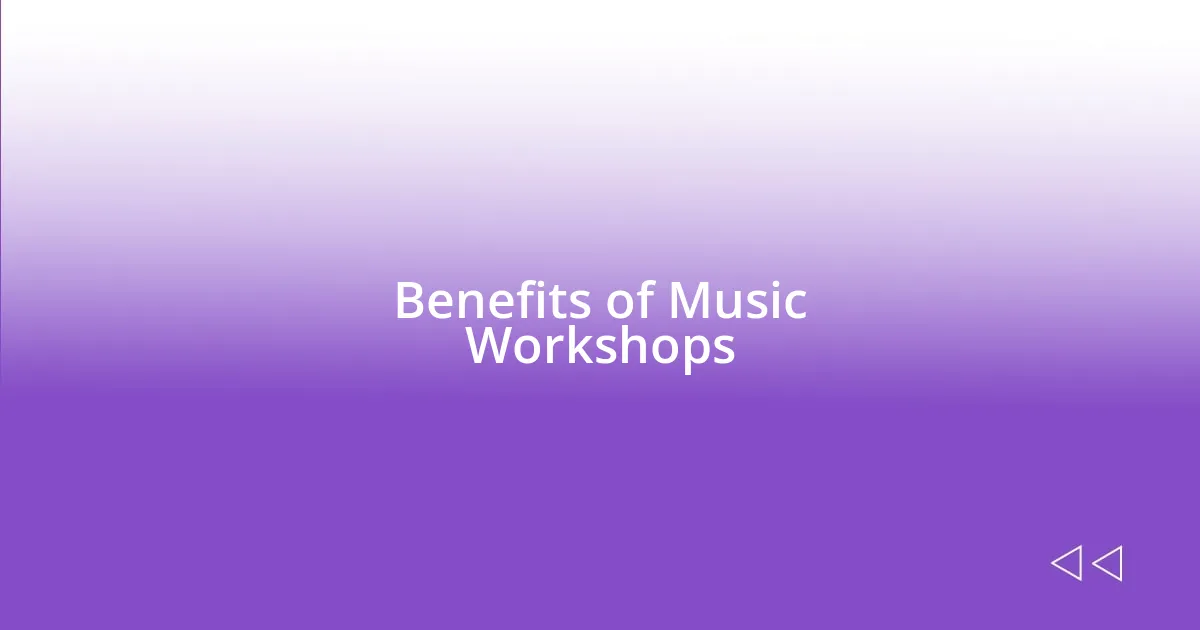
Benefits of Music Workshops
One of the most significant benefits of music workshops is the sense of community they foster. I remember walking into my first workshop, feeling a mix of excitement and anxiety. But as we began to share our musical experiences, a palpable bond formed among us, transforming that initial jitteriness into laughter and supportive camaraderie. Isn’t it amazing how music can bring strangers together, creating friendships that often last far beyond the workshop itself?
Additionally, these workshops serve as an incredible platform for personal growth. I once participated in a songwriting workshop where I was challenged to share lyrics that were deeply personal to me. The experience felt vulnerable, yet liberating, as feedback from peers helped me refine my voice. Isn’t it interesting how pushing ourselves out of our comfort zones can lead to profound self-discovery?
Finally, the skills learned in music workshops are invaluable and transferable. For instance, I took a rhythm class that dramatically improved my timing not just in music but also in my daily life. Have you ever noticed how learning to listen actively and respond in music mirrors our interactions in conversations? It’s remarkable how these skills translate to various aspects of our lives.
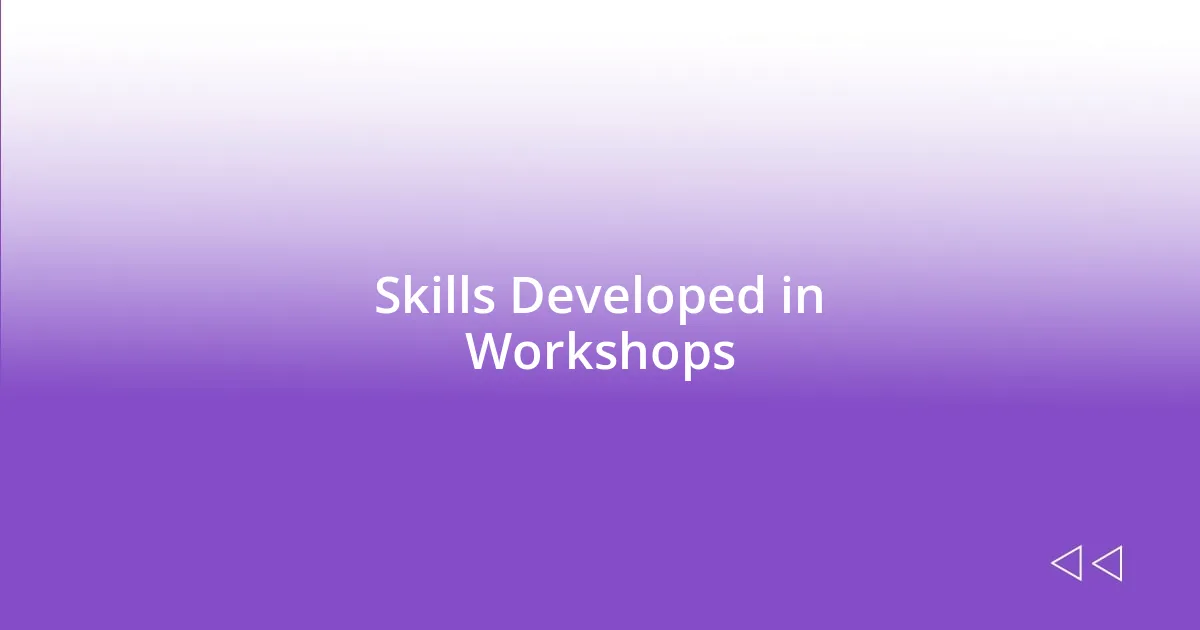
Skills Developed in Workshops
Participating in music workshops has undeniably helped me cultivate a myriad of skills that extend beyond the realm of music itself. One unforgettable moment was during a group improvisation session; I learned the importance of adaptability and spontaneity. You have to be in the moment, ready to shift gears based on what others are playing. That experience not only fine-tuned my musical ear but also enhanced my decision-making abilities in daily life situations.
Some key skills developed in workshops include:
- Collaborative Skills: Learning to work harmoniously with others.
- Active Listening: Enhancing the ability to understand and react to musical cues.
- Creativity: Encouraging innovative thinking and expression.
- Confidence: Building self-assurance through sharing and performing.
- Technical Proficiency: Improving instrumental techniques tailored to specific genres.
Each of these skills has enriched my personal and professional interactions, proving that music education is a holistic experience. It’s fascinating how a simple jam session can teach you so much about teamwork and trust!
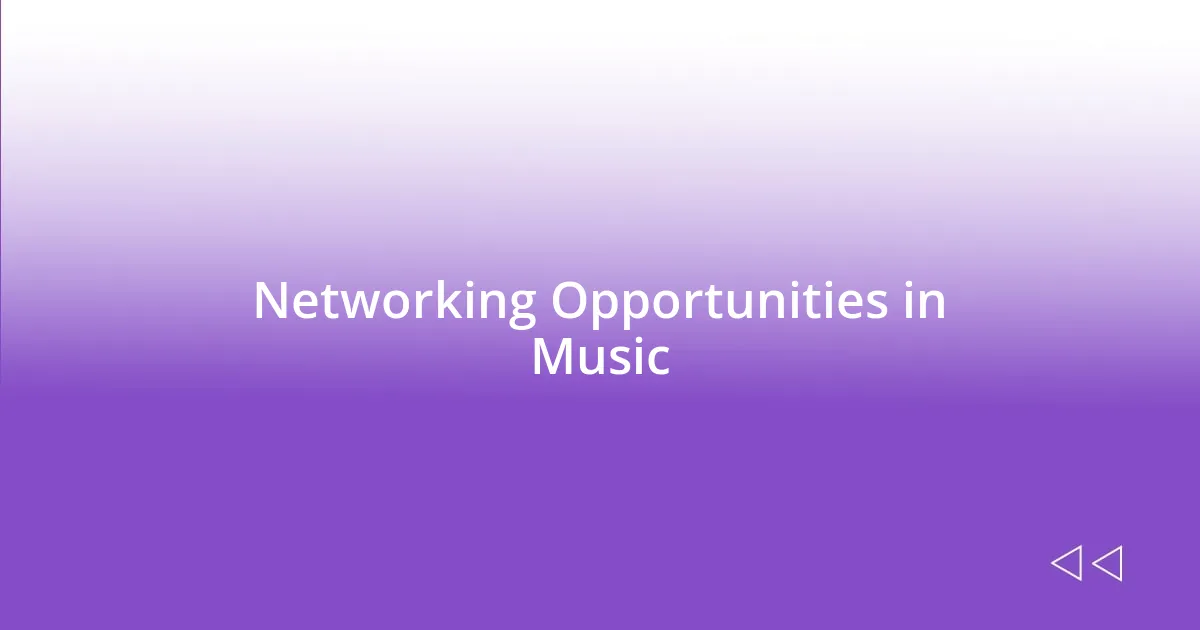
Networking Opportunities in Music
When I think about the networking opportunities in music workshops, I remember the moment I exchanged contact information with a fellow musician who later became a collaborator on my first EP. Connecting with others in these creative environments is invaluable. There’s a unique blend of shared passion and collaborative spirit that makes it easier to forge connections that can last for years.
Attending workshops often leads to collaborations and creative exchanges that can elevate one’s career. For instance, I was in a workshop where we were grouped by musical interests. This led to an impromptu performance that caught the attention of a local producer. It made me realize how a single interaction can change the course of your career in music. Have you ever experienced that thrill when networking unexpectedly opens a door?
Moreover, I’ve seen how these workshops can introduce individuals to genres and cultures they may not have encountered otherwise. In my experience, I connected with a percussionist from a different musical background, which inspired me to explore world music. It’s fascinating how music can bridge gaps between people from diverse backgrounds and create lasting partnerships. The connections I’ve made during workshops continue to enrich my life, both musically and personally.
| Networking Opportunities | Personal Anecdote |
|---|---|
| Collaborations | Met a fellow musician who co-produced my first EP |
| Creative Exchanges | Joined an impromptu performance that attracted a local producer |
| Diverse Genres | Connected with a percussionist, inspiring my exploration of world music |
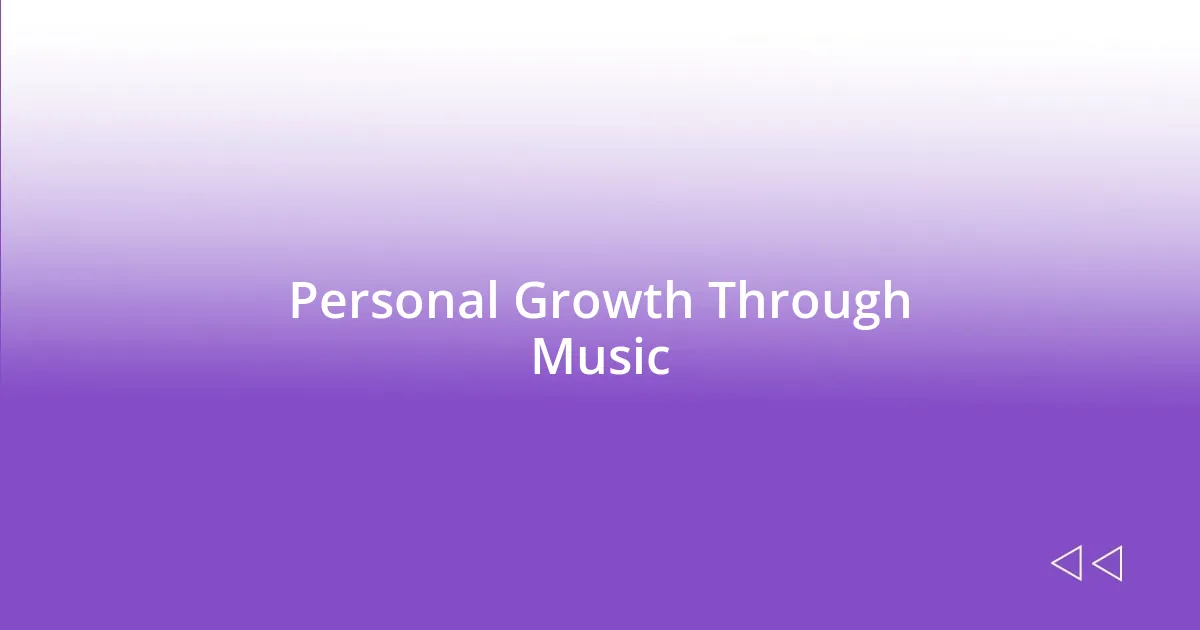
Personal Growth Through Music
Engaging with music has profoundly shifted my perspective on personal growth. I still remember the moment I stood in front of a group, heart racing, sharing an original song for the first time. That experience taught me the power of vulnerability – how exposing my raw emotions through music not only built my confidence but also fostered connections with others who felt my story. Have you ever shared something deeply personal?
The workshops also pushed me beyond my comfort zone, encouraging me to explore aspects of my identity through music. There was a session focused on storytelling through lyrics, where I wrote about my childhood struggles. As I shared those lyrics, I felt a wave of catharsis wash over me. It was liberating to realize how music could transform pain into something beautiful, a lesson that resonates well beyond the rehearsal space.
Moreover, I noticed that each workshop brought diverse perspectives on creativity, which significantly enhanced my adaptability. In one session, we were encouraged to break genre norms, which led to an unexpected blend of folk and electronic sounds. It was thrilling to experiment collaboratively, highlighting how stepping outside the box can lead to remarkable personal revelations. How has stepping out of your comfort zone shaped your own journey?
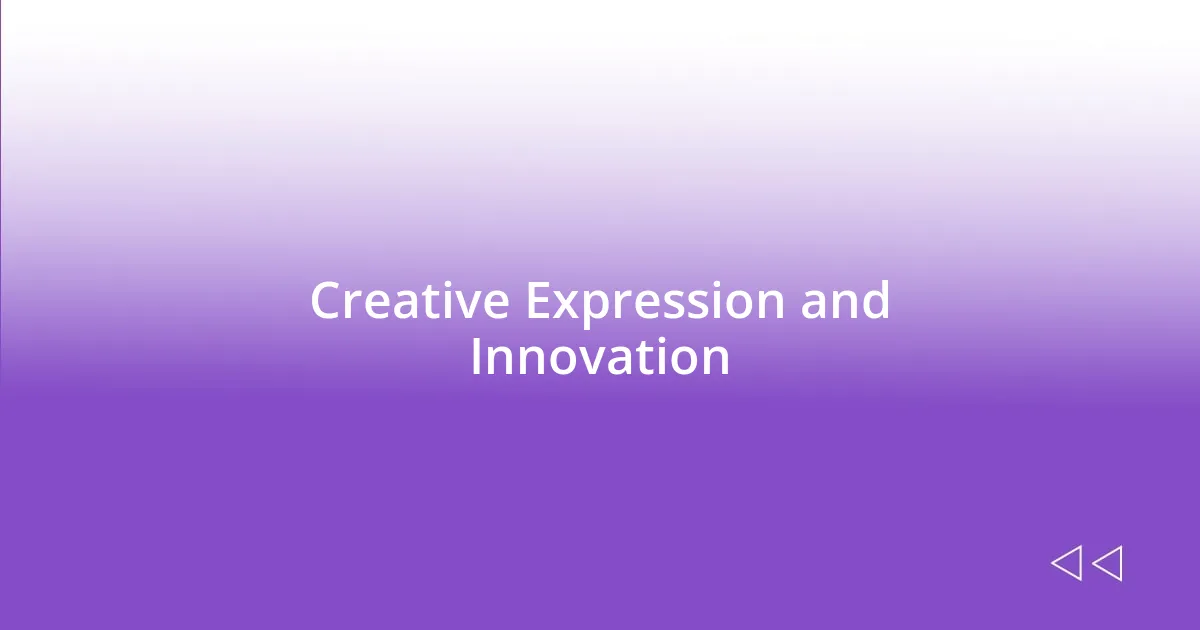
Creative Expression and Innovation
Creative expression thrives in music workshops, often sparking innovative ideas that blend genres and styles. I remember a session where we were all tasked with creating soundscapes using unconventional items like water bottles and boxes. The experience made me realize that creativity knows no bounds—it’s often when we stray from traditional methods that the most exciting innovations emerge. Have you ever stumbled upon a groundbreaking idea simply by trying something unexpected?
The collective energy in these workshops not only fuels creative expression but also encourages experimentation. I once participated in a group where we were challenged to write a song in just thirty minutes. The pressure ignited a flurry of inspiration, and the resulting piece was far more vibrant than anything I could have created alone. It’s moments like these that remind me how collaboration can lead to uncharted territories in music.
In my journeys through various workshops, I’ve discovered that the exchange of ideas often leads to personal reinvention. During one particularly captivating encounter, a jazz guitarist introduced me to improvisational techniques that reshaped my approach to songwriting. The flexibility to innovate and adapt is incredibly empowering, assuring me that music is a canvas where anything is possible. Have you ever found yourself transformed by a fresh perspective?
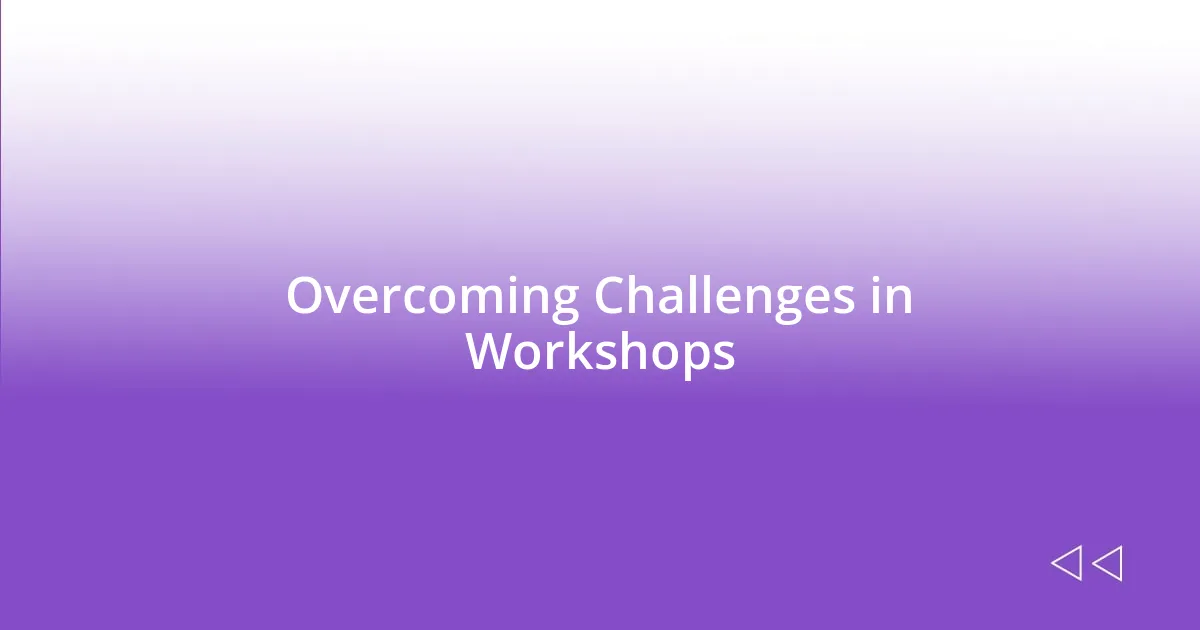
Overcoming Challenges in Workshops
Overcoming challenges in music workshops often requires stepping outside my comfort zone, which I’ve come to view as an exhilarating part of the journey. There was one workshop where I was paired with musicians who played instruments I had never encountered. Feeling a mix of excitement and apprehension, I realized that collaborating with those outside my usual circle opened my ears to new sounds and ideas. Have you ever felt the thrill of embracing the unknown?
Another significant hurdle I faced was the fear of judgment from peers. During a particularly intimate session, we were encouraged to share our unfinished compositions. My heart raced as I revealed my half-baked ideas, expecting criticism. Instead, I was met with encouragement and constructive support that changed my perception of vulnerability in a creative space. It taught me that true growth often lies in sharing our raw, unpolished work. Have you ever shared your early drafts with someone and felt that sense of relief and community?
Lastly, time constraints often pose a challenge in workshops, pushing us to work under pressure. I remember a day where we had merely twenty minutes to compose a piece. Initially, it felt daunting, but as the minutes ticked away, the adrenaline lit a fire within me. We produced something raw and passionate, a reminder that sometimes limitations can spark creativity instead of stifling it. How have time limits influenced your own creative process?
